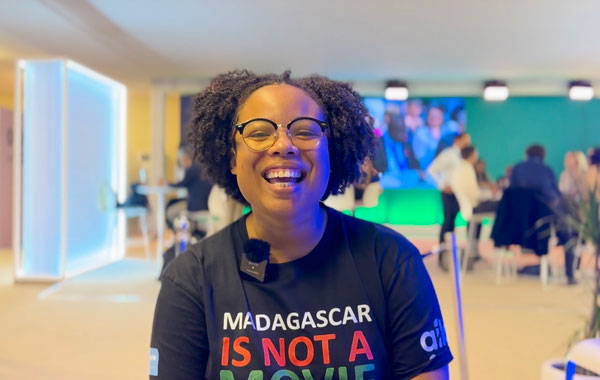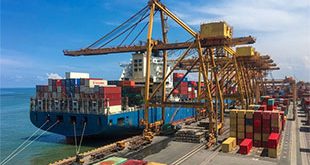
Madagascar, known to many through the celluloid fantasies of Hollywood, finds an authentic voice in Marie Kolo
SPECIAL REPORT | BIRD AGENCY | Our national anthem is not, I like to move it,” declared Marie Kolo, her words echoing a deep-seated desire to uplift the true image of her country, a far cry from the animated jungles and dancing lemurs of Hollywood’s creation.
In the island nation, Kolo’s name has become emblematic of climate activism, social entrepreneurship and ecofeminism. Her fight for years now has been for the identity of Madagascar and its people as part of the diverse and rich tapestry of Africa.
“When I talk about my country, some people don’t even know where it is,” she lamented. “They ask if Madagascar is an island, or if it’s even a real country.”
Kolo also challenges the narrative of what it means to be African, confronting stereotypes and ignorance surrounding the continent’s island states.
“What it is to be African, actually, because I’m very proud to be a part of the continent,” she said of one of her key challenges.
“But we African island states, we’re not even on the map. When you see the the African map, I’m sure that most people don’t know where is Cape Verde, where is Mauritius, Seychelles, etc. so we are kind of isolated. So I’ve been participating in discussing this since COP21. And I’m trying to advocate for not only my population, and the local communities, but also for other African island states.”
Included on BBC’s top 100 inspiring and influential women in 2022, her journey into activism began in her childhood, spurred on by a direct encounter with environmental degradation in her once-pristine neighbourhood.
“My journey into climate activism,” she reflected, “began when I was just eight years old.”
She recounts how a factory’s arrival in a neighbourhood surrounded by forests and rivers sparked her first environmental protest. It polluted the local river, changing its colours and alarming the young Kolo.
Miffed by inaction from local authorities, she vowed to do something. With the support of her parents and younger sister, she organised a protest and petition that successfully halted the factory’s harmful practices. This early victory sowed the seeds of a lifelong commitment to environmental advocacy.
“My voice is exhausted,” Kolo admitted, reflecting on her relentless advocacy at COP28. “I think I lost my voice because of frustration.”
This frustration stems from Madagascar’s struggle for visibility and recognition in international climate negotiations.
Despite being among the 10 nations most vulnerable to climate change, Madagascar often remains overlooked, with most people only referencing it to animation film.
But Kolo’s dedication to her cause eventually led to a pivotal moment at COP25 in Madrid, a conference dedicated to oceanic issues, crucial for island nations like Madagascar.
Despite the thematic focus, her country’s delegation had no pavilion and was relegated to sitting on the floor during meetings. This physical manifestation of invisibility in global discussions deeply affected her.
The situation escalated when she confronted her country’s Minister of Environment about the lack of visibility and participation of civil society in these crucial discussions. The encounter was tense and charged with emotion.
“He was violent,” Kolo recalled. “He grabbed my hand, shouted at me, and tried to put me on the floor in front of everyone.”
This public humiliation, instead of silencing her, only fuelled her resolve. In response, she wrote an open letter to the President of Madagascar, voicing her frustrations and the need for meaningful participation of youth and civil society in climate dialogues.
This bold move had a significant impact, leading to the resignation of the minister and the establishment of a new directorate within the ministry to engage with youth and feminist organisations on climate negotiations.
Today, Kolo’s work is multifaceted, addressing climate justice and gender equity on various fronts and thanks in part to her activism, Madagascar has for the first time a pavilion at this COP28.
She currently serves as the Indian Ocean Regional Director of the NGO, People Power Inclusion, focusing on economic inclusion through the green and blue economies.
Her social business, Green N Kool, is now a leading outfit in the circular economy and spearheads the national platform on Gender and Climate Justice.
As a co-founder of the Indian Ocean Climate Network and the Aika movement, Kolo empowers youth CSOs working on climate and biodiversity issues. Her personal experiences as a survivor of violence led her to establish “Women Break the Silence,” a national movement fighting against rape culture.
Her tireless work in climate justice and gender equity has garnered numerous accolades, including the Martine Anstett International Prize for Human Rights and the Brote Activismo Medioambiental from FICMEC among others.
Kolo has been instrumental in promoting economic inclusion through green and blue economy initiatives and Green N Kool is just one of the tools she uses to drive sustainable development and the circular economy.
At the same time, Kolo works tirelessly to amply the voices of women, especially in her homeland where it is still stifled.
“In my country, we say that a woman is a ‘Fanaka Malemy’. It means ‘weak furniture’. We’re not even an animal, we are less than animals, we are ‘weak and fragile furniture’. But I am not weak at all, come on,” she proclaimed.
***
SOURCE: Seth Onyango, bird story agency
 The Independent Uganda: You get the Truth we Pay the Price
The Independent Uganda: You get the Truth we Pay the Price




Okeplay777
Best Slot Online At Indonesia
RTP 967%
It’s enormous that you are getting ideas from
this article as well as from our dialogue made here.